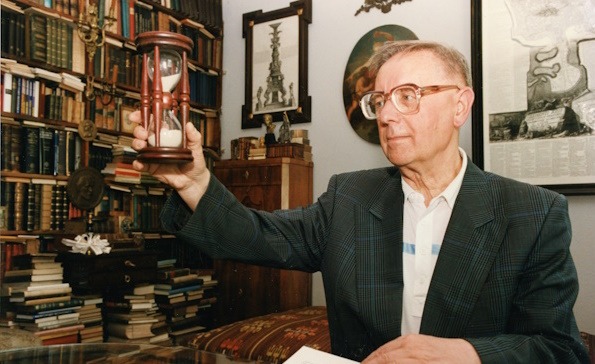Krawczuk made antiquity popular.
The Aleksander Krawczuk phenomenon
8/7/20252 min read


Between 1960 and 2005, a surprising literary phenomenon unfolded behind the Iron Curtain. Hidden from Western eyes, undetected by Western publishers, a humble professor of Latin published great mass-market non-fiction best sellers avidly consumed by the general public. Bestsellers on the subject of… (wait for it!) Greco-Roman antiquity.
Now, ancient Rome is a niche market. There are enough hobbyists to support several dozen new books every year, but the volumes are small and the quality varies. And it is not a demanding market. Just how undemanding it is we can see from trending YouTube videos. Roman Empire hobbyists are happy to watch hours of poorly edited videos in which other Roman Empire hobbyists dressed as Roman legionaries fight with Japanese Samurai or attempt to the Iron Man. Not much mass appeal there.
But our professor's books were different. They were real best-seller stuff, and they found genuine mass-market appeal. I remember growing up in the 1970s, seeing lorry drivers and bookkeepers reading Krawczuk on their lunch break. What made his books so special?
First of all, it was their conversational, unassuming, accessible prose. The good professor did not write long and convoluted sentences stuffed with seven-syllable Latin words. He saw that even the most complicated subjects can be discussed simply and clearly. He also saw that the general public is not too stupid to consume ambitious material as long as it is presented in a relevant way.
Secondly, it was the unique format of these books. Not for Aleksander Krawczuk the one-damn-thing-after-another style of historical writing. Rather, his books experiment with form and voice and range from vast panoramas of the Mediterranean at the time of the of the destruction of the Second Temple of Jerusalem (Rome and Jerusalem, Mondrala Press, 2024) in which his writing sometimes reads like Barbara Tuchman's Distant Mirror; to humorous reimagining of the inner life of Apuleius, Rome's greatest best-selling author--which really has no equivalent anywhere in the literature.
Finally, and most importantly, the good professor found a way to show how the past is relevant today, how we can see ourselves in the events of the distant past, and how our present can illuminate those events. Presented in this way, Emperor Nero and Princess Berenice appear to us as living, breathing people with whom we can identify, whose hopes and desires we share, and whose fears keep us up at night as well.
It was the time of the Iron Curtain, and publishing Polish books in the West was nearly impossible. But many of Krawczuk's books became international bestsellers across Eastern Europe. The Iron Curtain has fallen since, but the usual channels of communication between publishing industries of different nations, East and West, by which books could flow from the periphery to the center, as they had done before World War II, have never been reestablished. And thus it falls to Mondrala Press, though this labor of love, to bring these books to English language readers.
Surprisingly, or perhaps not surprisingly, Krawczuk's books are finding fans in the West, showing that good writing of history is never out of climate or out of season.
Check out https://aleksandersantiquities.com/ and see if you like anything.
And if you would like to help buy and review a book. There is always something on sale for just $0.99.


